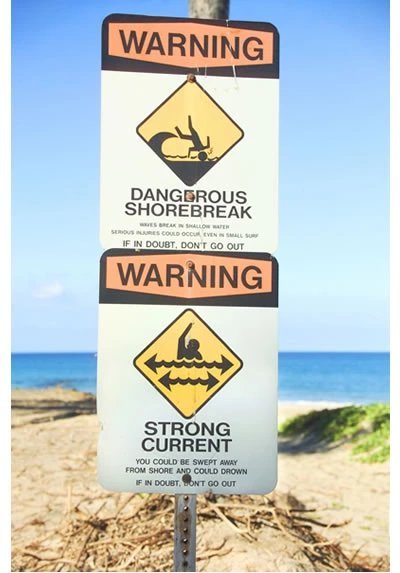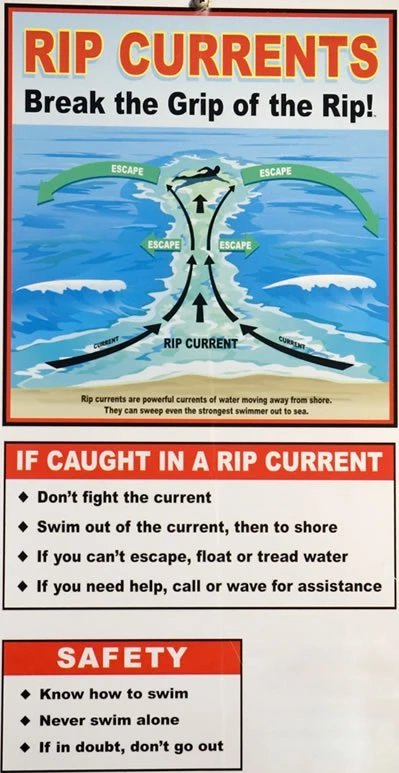Beach Safety Tips

Beach Safety Tip #1: Choose a beach with a lifeguard
It is best to swim at guarded beaches. But keep in mind that lifeguards are
humans too and they can't watch everyone all the time. Stay within sight and
near the shore.
Beach Safety Tip #2: Pay attention to beach warning signs
Whenever possible, signs are posted on beaches that warn beachgoers about current
dangers, such as strong currents, stinging jellyfish, sharp corals, slippery
rocks and other hazards.
Beach Safety Tip #3: Don't swim at remote beaches
If you want to swim at a remote beach and notice that no one else is in the
water, stay out. There is probably a reason why.
Beach Safety Tip #4: Never turn your back on the ocean
Sudden large waves can sneak up on you and sweep you off the beach or rocks
and pull you out to deep water without warning.
Beach Safety Tip #5: If in doubt, don't go out!
Whenever you're not sure if a beach is safe to swim at, don't enter the ocean.
